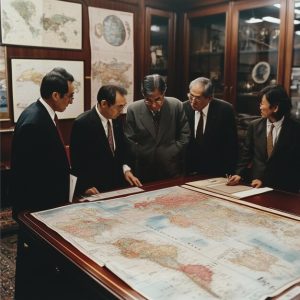Strategic leadership is a critical component in the success of any organization, especially in a country like Turkey, where diverse industries contribute to the overall economic landscape. In multi-sector industries, where companies operate in complex and dynamic environments, strategic leadership is essential for navigating challenges, seizing opportunities, and driving sustainable growth. This article delves into the concept of strategic leadership, its importance in Turkey’s multi-sector industries, and the strategies that leaders can employ to achieve long-term success.
Understanding Strategic Leadership

Strategic leadership involves the ability to influence others, make decisions that align with long-term goals, and guide an organization through periods of change and uncertainty. Unlike traditional leadership, which focuses on day-to-day operations, strategic leadership emphasizes the big picture, ensuring that the organization’s vision, mission, and strategies are aligned with its overall objectives.
- Visionary Thinking: Strategic leaders are visionaries who can see beyond the immediate challenges and anticipate future trends. In Turkey’s multi-sector industries, this type of leadership is crucial for staying ahead of the competition and adapting to changing market conditions.
- Decision-Making Under Uncertainty: One of the key attributes of strategic leadership is the ability to make informed decisions in the face of uncertainty. This is particularly important in industries such as technology, finance, and manufacturing, where rapid changes can create both risks and opportunities.
- Alignment of Goals: Strategic leaders ensure that all aspects of the organization are aligned with its long-term goals. This involves coordinating efforts across different departments, managing resources effectively, and fostering a culture of collaboration and innovation.
The Role of Strategic Leadership in Turkey’s Technology Sector
Turkey’s technology sector has experienced rapid growth in recent years, driven by innovation, digital transformation, and increased investment. Strategic leadership plays a pivotal role in guiding tech companies through this growth phase, ensuring that they remain competitive in a global market.

- Driving Innovation: Strategic leaders in the technology sector focus on fostering a culture of innovation. This involves encouraging creativity, investing in research and development, and staying abreast of technological advancements. By prioritizing innovation, tech companies can develop cutting-edge products and services that meet the evolving needs of customers.
- Navigating Digital Transformation: Digital transformation is a key trend in the technology sector, and strategic leadership is essential for successfully navigating this transition. Leaders must develop strategies that integrate digital technologies into all aspects of the business, from operations to customer engagement, to enhance efficiency and drive growth.
- Global Expansion: As Turkish tech companies seek to expand globally, strategic leadership is crucial for entering new markets and competing with international players. Leaders must develop strategies that consider local market dynamics, regulatory environments, and cultural differences to ensure successful global expansion.
Strategic Leadership in Turkey’s Manufacturing Industry
The manufacturing industry is a cornerstone of Turkey’s economy, contributing significantly to employment and exports. In this sector, strategic leadership is vital for enhancing productivity, adopting new technologies, and maintaining competitiveness in a global market.
- Adoption of Industry 4.0: Strategic leaders in the manufacturing industry are increasingly focusing on Industry 4.0, which involves the integration of digital technologies such as automation, IoT, and data analytics into manufacturing processes. By adopting these technologies, companies can improve efficiency, reduce costs, and enhance product quality.
- Supply Chain Management: Effective supply chain management is essential for the success of manufacturing companies. Strategic leaders must develop strategies that optimize supply chain operations, enhance supplier relationships, and reduce lead times. In Turkey, where manufacturing is closely tied to global supply chains, strategic leadership is key to ensuring that companies can respond to disruptions and maintain continuity.
- Sustainable Manufacturing: Sustainability is becoming a major focus in the manufacturing industry, driven by consumer demand and regulatory pressures. Strategic leaders must develop strategies that incorporate sustainable practices, such as reducing waste, conserving energy, and minimizing environmental impact. By prioritizing sustainability, Turkish manufacturers can enhance their reputation and appeal to eco-conscious consumers.
The Impact of Strategic Leadership on Turkey’s Tourism Sector
Turkey’s tourism sector is a major contributor to the economy, attracting millions of visitors each year. Strategic leadership is essential for ensuring that the sector remains competitive, resilient, and capable of adapting to changing market conditions.

- Destination Branding: One of the key aspects of strategic leadership in tourism is destination branding. Leaders must develop strategies that promote Turkey’s unique attractions, cultural heritage, and natural beauty to attract a diverse range of tourists. Effective branding involves collaboration with various stakeholders, including government agencies, travel agencies, and media outlets.
- Crisis Management: The tourism sector is highly susceptible to external shocks, such as political instability, natural disasters, and pandemics. Strategic leaders must be prepared to manage crises and develop contingency plans that ensure the sector’s resilience. This involves coordinating with government authorities, communicating effectively with stakeholders, and implementing strategies to rebuild confidence among tourists.
- Sustainable Tourism: As sustainability becomes increasingly important to travelers, strategic leaders in the tourism sector must develop strategies that promote sustainable tourism practices. This includes minimizing the environmental impact of tourism activities, supporting local communities, and preserving cultural heritage. By prioritizing sustainability, Turkey can attract eco-conscious travelers and enhance the long-term viability of its tourism industry.
Strategic Leadership in Turkey’s Financial Services Sector
The financial services sector is one of the most dynamic and competitive industries in Turkey, playing a crucial role in supporting economic growth and stability. Strategic leadership is essential for navigating the complexities of this sector, from regulatory challenges to technological disruption.
- Regulatory Compliance: The financial services sector is heavily regulated, and strategic leaders must ensure that their organizations comply with all relevant laws and regulations. This involves staying up-to-date with regulatory changes, developing risk management strategies, and fostering a culture of compliance. In Turkey, where the regulatory environment is constantly evolving, strategic leadership is key to maintaining trust and credibility with stakeholders.
- Technological Innovation: Technology is transforming the financial services sector, with innovations such as fintech, blockchain, and artificial intelligence reshaping the industry. Strategic leaders must develop strategies that leverage these technologies to enhance customer experiences, improve efficiency, and gain a competitive edge. By embracing innovation, Turkish financial institutions can position themselves as leaders in a rapidly changing industry.
- Customer-Centric Strategies: In the financial services sector, customer trust and satisfaction are paramount. Strategic leaders must develop customer-centric strategies that prioritize the needs and preferences of clients. This involves offering personalized services, improving transparency, and building strong relationships with customers. By focusing on customer satisfaction, financial institutions can build loyalty and drive long-term success.
Strategic Leadership in Turkey’s Agricultural Sector

Agriculture remains a vital sector in Turkey, contributing to food security, employment, and rural development. Strategic leadership is essential for modernizing the agricultural sector, improving productivity, and ensuring sustainability.
- Modernization of Farming Practices: Strategic leaders in agriculture must focus on modernizing farming practices through the adoption of new technologies and techniques. This includes precision farming, smart irrigation, and the use of drones for crop monitoring. By improving productivity and efficiency, strategic leaders can help farmers achieve better yields and reduce costs.
- Market Access and Value Chain Integration: Expanding market access is a key objective of strategic leadership in agriculture. This involves connecting farmers with local, regional, and international markets, as well as integrating the agricultural value chain from production to processing to distribution. By improving coordination and collaboration among different players in the value chain, strategic leaders can enhance the overall efficiency and profitability of the sector.
- Sustainability in Agriculture: Sustainability is becoming increasingly important in the agricultural sector, driven by concerns about climate change, resource depletion, and environmental impact. Strategic leaders must develop strategies that promote sustainable farming practices, such as reducing water usage, conserving soil health, and minimizing chemical inputs. By prioritizing sustainability, Turkish agriculture can contribute to food security and environmental protection.
Challenges and Opportunities for Strategic Leadership in Turkey
While strategic leadership offers numerous opportunities for growth and innovation across Turkey’s multi-sector industries, it also comes with challenges that need to be addressed.
- Economic and Political Uncertainty: Strategic leaders in Turkey must navigate a complex landscape characterized by economic and political uncertainty. Fluctuations in currency value, inflation, and regulatory changes can pose significant challenges to strategic leadership efforts.
- Access to Finance: Access to finance is often a barrier to strategic leadership, particularly for small and medium-sized enterprises (SMEs). Strategic leaders need to identify funding sources, such as venture capital, grants, and loans, to support the growth of these businesses.
- Talent and Skills Development: A skilled workforce is essential for successful strategic leadership. In Turkey, there is a need for continuous investment in education and training to ensure that workers have the skills required to meet the demands of a rapidly changing economy.
- Innovation and R&D: Innovation is at the heart of strategic leadership, but it requires significant investment in research and development (R&D). Strategic leaders must advocate for increased R&D spending and create an environment where innovation can thrive.
The Future of Strategic Leadership in Turkey’s Multi-Sector Industries
The future of strategic leadership in Turkey is bright, with many opportunities for growth and innovation across various sectors. As the country continues to evolve, strategic leadership will play a crucial role in shaping the economy and driving multi-sector growth.
- Digital Transformation: The ongoing digital transformation will continue to be a major focus of strategic leadership efforts in Turkey. By embracing digital technologies, companies can improve efficiency, enhance customer experiences, and open up new markets.
- Sustainability and Green Growth: Sustainability will be a key driver of strategic leadership in the coming years. Companies that prioritize sustainable practices will be better positioned to meet the demands of environmentally conscious consumers and comply with emerging regulations.
- Global Competitiveness: As Turkey’s economy becomes more integrated with the global market, strategic leadership strategies will need to focus on enhancing global competitiveness. This includes expanding into new markets, improving product quality, and building strong international partnerships.
Conclusion
Strategic leadership is a vital component of success in Turkey’s multi-sector industries. By focusing on long-term goals, making informed decisions, and fostering a culture of innovation and collaboration, strategic leaders can drive growth and ensure the sustainability of their organizations. As Turkey continues to evolve, the role of strategic leadership will become even more important in navigating the challenges and opportunities that lie ahead.
Business Development: Empowering Multi-Sector Growth Across Turkey in 2024
Visionary Leadership for Best Turkey’s Diverse Sectors in 2024

